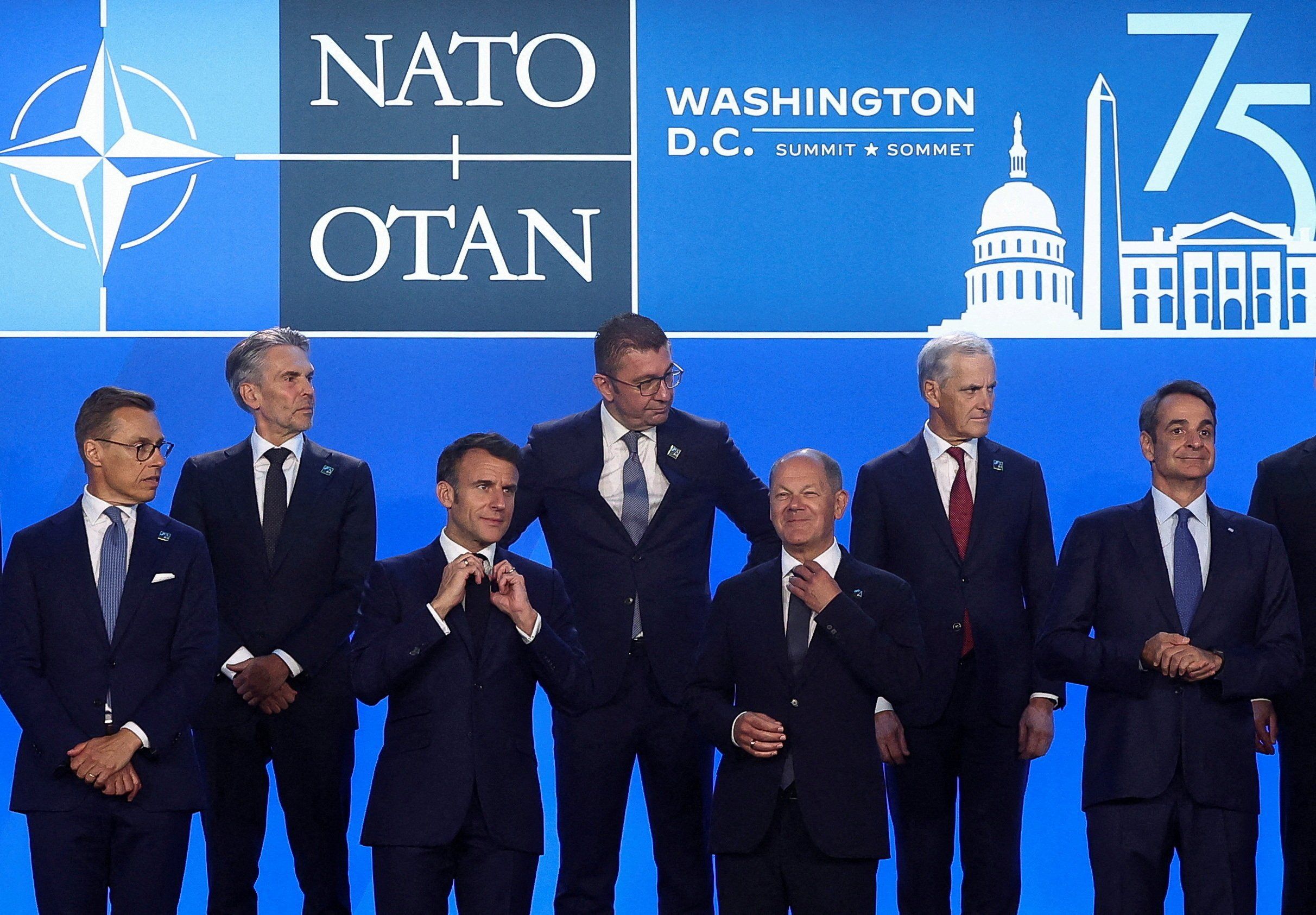Although Donald Trump isn’t present at the NATO summit this week, his name is everywhere at the event, where the world’s most powerful military alliance is preparing for the (very real) possibility that he could be back in the White House next year.
Trump, of course, hasrepeatedly said that the US should not protect members who do not meet NATO’s guidance of paying 2% of their GDP on defense. That’s a threat that would violate the alliance’s most basic mutual defense obligations. He has alsoquestioned sending military aid to Kyiv and has favored closer relations with Russian President Vladimir Putin.
To protect the alliance against all of that – Trump-proofing some would say – NATO leaders are taking some steps. For one thing, they have appointed Mark Rutte as the new secretary general – largely because leaders saw the former Dutch PM, who is a veteran of transatlantic politics, expressed a willingness to work with Trump when campaigning for the job. And they have moved majorelements of military aid for Ukraine – from funding to training – away from US command to the NATO umbrella.
But they have also taken steps to address Trump’s primary concern: “freeloading” in NATO. A record 23 of the 32 NATO countries will reach the 2% spending target this year, more than twice as many as in 2021. Russia’s invasion of Ukraine is largely to thank for that – an aggressive Kremlin has concentrated minds in Europe – but it’s impossible to ignore Trump’s encouragement of Russia to “do whatever the hell they want” to NATO members delinquent on defense dues.
The Trump administration’s rhetoric was a wake-up call to European allies, according to NATO’s Deputy Secretary General Mircea Geoana. “They were saying, listen European allies, we just cannot continue for you to thrive under our protection. And now I think it's a more balanced relationship,” he told GZERO’s Emilie Macfie at the summit on Wednesday.
As it happens, the NATO members closest to the Russian bear seem surprisingly unflustered by the prospect of Trump 2.0.
Poland’s President Andrzej Duda and the defense ministers of Estonia, Latvia, and Lithuania – all of which share a prickly border with Russia – told GZERO during a meeting with Baltic defense ministers during the NATO summit that under Trump the US increased its military presence in Poland and the Baltics.
The Baltic defense ministers, meanwhile, said that Trump was right to call out NATO spending laggards, and why not: All of the Baltic nations are spending above2%, and Poland leads the alliance at4.1%.
In short: They aren’t the problem, so they aren’t worried – and they are confident that they can communicate that in terms that Trump can understand.
“Trump is a golfer and NATO is a club,” said Estonia’s defense minister Hanno Pevkur in response to whether Baltic nations fear Trump regaining power. “When you pay the fee in the golf club, you can play.”
